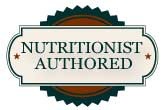
All-stock feeds claim to be acceptable for all forms of livestock, including horses. However they have several drawbacks for horses. They offer very few vitamins and only basic electrolytes. If the horse is always grazing on fresh, healthy grasses, and has no exercise or performance demands, he will get most of the vitamins he needs from pasture. But hay has lost key nutrients which are not provided from these feeds. For example, vitamin E is typically not added; horses at maintenance require at least 500 IUs per day.

Grain supplements should match horse nutrient requirements
All purpose grain mixes, designed for a wide variety of livestock, are probably not a good choice for equines.
Interestingly, selenium is often included without its partner, vitamin E which may not be advisable if selenium levels are adequate from forages. Furthermore, these feeds are low in vitamin A, there are no B vitamins, and minerals such as zinc, manganese, cobalt, and magnesium are minimally supplemented, if at all. Also be aware that all-stock feeds cannot contain copper because sheep are sensitive to it. Therefore, horses would require copper supplementation at about 1/3 the level of zinc.
Another issue with all-stock feeds is that they tend to be high in starchy cereal grains (oats, corn, barley, etc.) and sugar (usually molasses). The digestive system of a horse is unlike that of ruminants (cows, sheep, and goats). Too much sugar and starch can create undesirable hormonal responses that can lead to laminitis. Furthermore, if large amounts are fed, horses can develop colic because the horse’s hind gut (cecum) is at the end of the digestive tract (rather than at the beginning, as it is with ruminants).
Bottom line… choose a feed that is designed for horses and preferably one that is not high in cereal grains or molasses.
